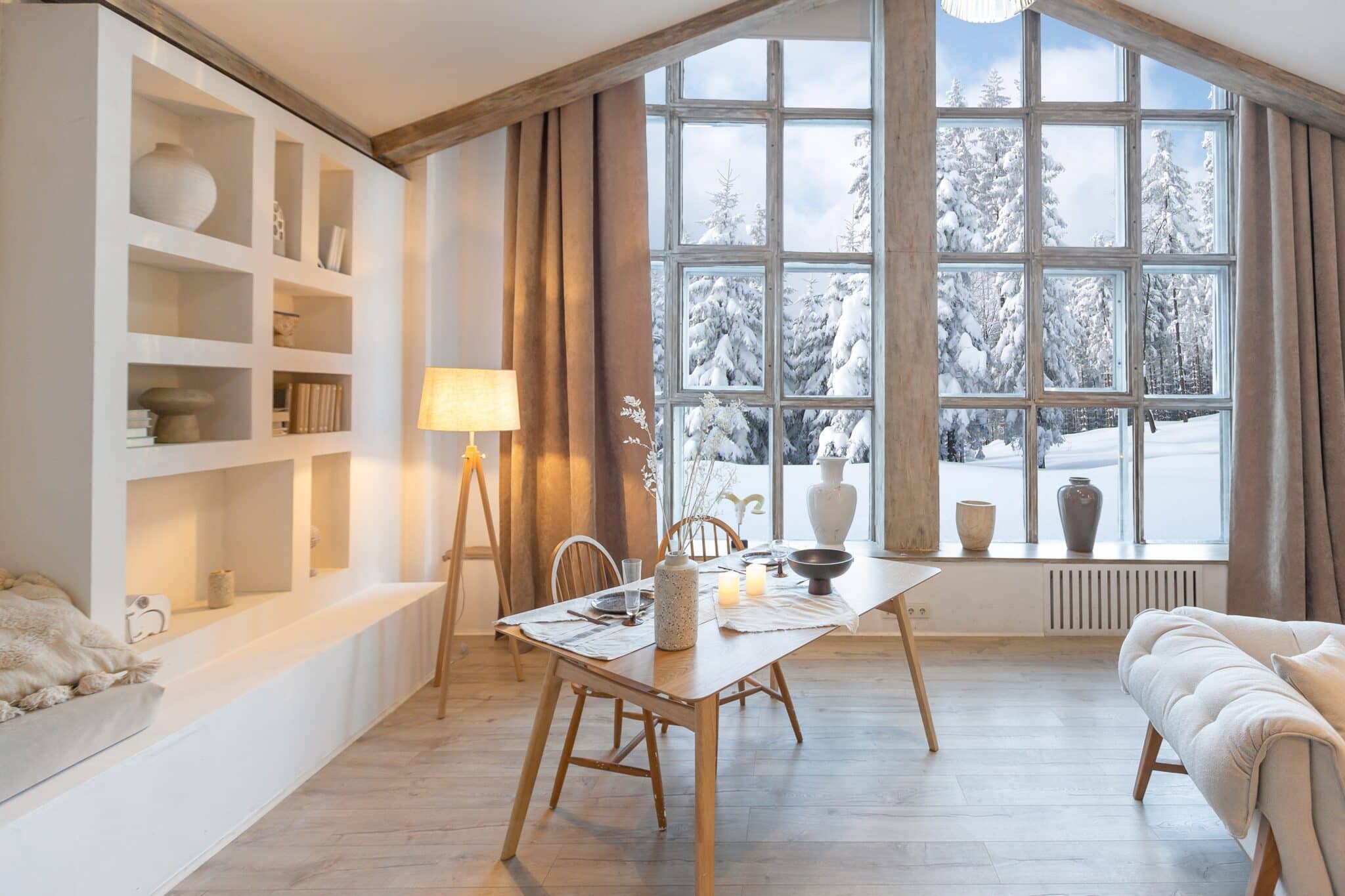Here’s a question often asked of our real estate specialists: “Are we sacrificing privacy to live in a 55+ community?” Prospective buyers may have different reasons for asking, but all of them value independence, autonomy, peace, and security.
Has this question kept you from considering life in an active adult development? If so, you might get the answers you need today to help get you off the fence. We’re here to help you choose which community is right for you.
Here are some insights into protecting your boundaries in a 55+ community—both personal and physical.
Lot Size Doesn’t Have to Restrict Solitude

Here’s perhaps the biggest concern people have when deciding to live in a 55+ development. If you’re moving from a sprawling suburb or rural area, life in a 55+ community might require some adjustment. While there are definitely communities with enormous parcels, most offer the low-maintenance living that comes with smaller homes and lots. That puts you in closer proximity to your neighbors.
The good news is that you’ll often have plenty of options, and those options go beyond lot size. Good construction, outdoor architecture, and creative landscaping can make an attached condo feel more private than a poorly built single-family dwelling on a large parcel.
Your Community Will Want To Get To Know You

Out “in the world,” you might not even know your next-door neighbors’ names. Or you could be in for a 30-minute drive to grab dinner with your nearest friend. When you’re living in a 55+ community, your world really does get smaller.
Given that many retired people focus on socializing as a big part of their lives, they’ll be curious about you. Through friendly banter, you might divulge more personal information than you’re prepared to or rush into events or committees when you’re more of the “toes in first” type at heart. Just remember that it’s okay to politely decline to answer questions or sign up for the next big bash. Most folks will understand.
Then again, your prospective community might have more of a live-and-let-live vibe. You might need to introduce yourself to your neighbors if that’s your style.
Here’s a tip: When you’re looking at communities, make sure to get in touch with the activities directors. They can give you the low-down on the community’s culture, and even get you an invite to an event or two so you can get “boots-on-the-ground” experience yourself.
Your Homeowner’s Association Matters

It’s one thing to have an endless welcome wagon train leaving ruts in your front yard; it’s entirely another to have a homeowner’s association (HOA) representative standing there, measuring your grass. HOAs uphold the development’s covenants, conditions, and restrictions (CC&Rs).
Board members can be your neighbors, or they might be professional property managers. They can be as lax as die-hard Jimmy Buffett fans, or so overbearing you might regret moving in. That’s why we’ve saved the most space for this section.
How HOAs Can Intrude Upon Your Sense of Privacy
- In age-restricted communities, you’ll have to provide proof of age for everyone in your household.
- They can inspect your property—even interiors, in some cases—for compliance.
- They may publish information about you, including violations and legal disputes, in their newsletters.
- They may require financial screening to ensure you can afford HOA dues (this is also common where a country club membership is compulsory).
- HOAs often have the authority to approve or deny changes to the exterior of homes, and when they are responsible for exterior maintenance, may schedule construction when it’s not convenient for the homeowner.
- HOA administrators may keep your personal information in an unsecured manner, making you vulnerable to data breaches or nosy board members.
- HOAs may even require that your pet give DNA samples, a practice that’s used to identify dog feces left in common areas.
How You Can Protect Your Privacy
- Read the community’s CC&Rs very carefully before you purchase a home. Better yet, have a real estate attorney look them over; their fee is worth your peace of mind.
- Sit in on an HOA meeting or two, and ask for past agendas and minutes. You’re looking for past actions against residents, the reasons they were brought forward, and how they were resolved.
- Ask residents about their experiences with or opinions about the HOA.
- Understand the HOA fees. Find out how often they’ve been raised in the past (and why).
- Consider HOAs and CC&Rs as important as any other variable when purchasing a home in a 55+ community.
Of course, HOAs aren’t restricted to active adult developments. There’s a good chance you’ve lived in a subdivision or building with one and you know how they work. But because they tend to have a higher profile in senior communities—given their greater responsibilities for common areas, facilities, and even maintenance and landscaping on private parcels—they’ll be a bigger part of your life.
But don’t worry; the vast majority of 55+ community HOAs do a great job maintaining community spaces and property values without ruffling residents’ feathers… and some communities thrive without having an HOA at all.
Some Things To Consider

The smaller the community, the more likely you are to experience small-town society, for better or for worse. Even larger active adult developments are more socially intimate than non-restrictive neighborhoods of the same size.
The very amenities that attract people to 55+ communities foster a sense of tight-knit neighborliness: Clubhouses, swimming pools, structured activities, and fitness centers become social hubs. But these perks require bylaws, and HOAs to responsibly enforce them.
Enjoy Your Personal Space on Your Terms
Active adult developments are on the rise, and you’re bound to find several where you’ll feel at home. The key is doing your research, and evaluating communities based on your lifestyle preferences, values, interests, and sense of comfort. That way, you can find the level of privacy in active adult communities you prefer.
Just starting your search for a 55+ community? Reach out to us at 55places. Our real estate experts specialize in active adult communities and can help you get the access you need to make informed, confident decisions!







